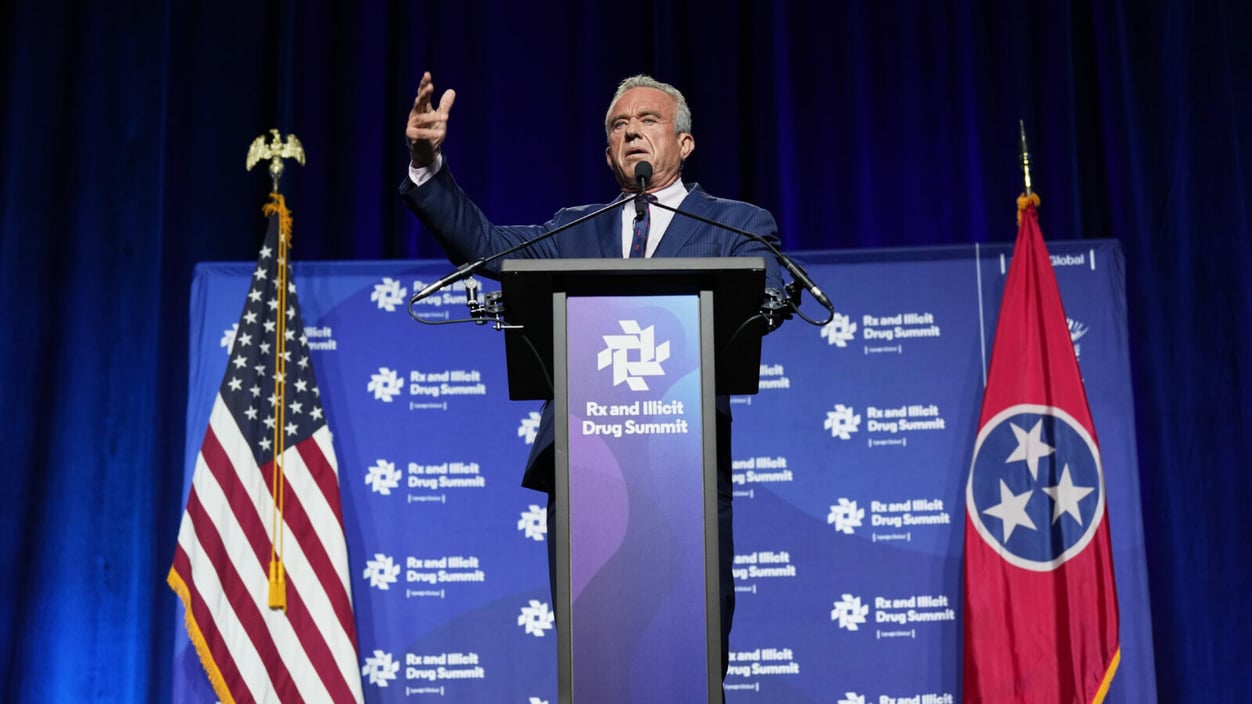public health
Meanwhile, addiction experts are waiting for Kennedy to do something

George Walker IV/AP
While he was campaigning to be president in 2024, Kennedy spoke often of his recovery from addiction. Historically, he has pitched a nationwide system of "healing farms," espoused the virtues of 12-step recovery like Alcoholics Anonymous, and advocated "tough love" for people battling addiction. But addiction and the ongoing U.S. drug crisis have played little role in Kennedy's first four months as the nation's top health care official, STAT's Lev Facher reports. The administration's most prominent proposal is to consolidate and downsize the numerous federal offices within HHS that are focused on addiction, substance use, and mental health.
"I'm still waiting for HHS and for Kennedy to come out swinging on recovery," said Tom Wolf, a San Francisco-based advocate who has publicized his own journey through addiction and homelessness. Read more from Lev on the lack of action and how it's being received.
reproductive health
Where abortion providers are practicing post-Dobbs
While there's been some early evidence that obstetricians, gynecologists, and trainees are leaving or avoiding states that enact abortion bans, it will take many more years to fully assess the long-term changes in the wake of the 2022 Supreme Court decision to overturn Roe v. Wade. A new study provides early insights on how clinicians who provide abortions have navigated the changing legislation.
Authors of a study published yesterday in JAMA Network Open surveyed more than 300 abortion providers about where they practiced before and after the Dobbs decision. Overall, 47 providers moved states at some point after the decision — 24 of whom moved from a state with an abortion ban to a state without one.
These are small numbers, but representative of what could become a monumental shift in access for patients. Even before the Supreme Court decision, 35% of U.S. counties were identified as maternity care deserts by researchers at the Commonwealth Fund. And a report from the same organization last year found that states with abortion bans already had fewer obstetric and gynecology providers than those without.
chronic disease
Women, young adults, and Native people see big increases in alcohol liver deaths
New research presents a discouraging picture of the nation's liver health, suggesting that a surge in deaths from alcohol-related liver diseases in the early months of the pandemic has continued in the years since. Between 2018 and 2022, the number of alcohol-associated liver disease deaths rose annually by nearly 9%, compared to much smaller annual increases of 3.5% between 2006 and 2018, according to the study, published yesterday in JAMA Network Open. And while men continued to make up the bulk of these deaths, women, young adults, and Native people have been hit particularly hard by these rapid increases.
"It puts numbers to what we're seeing in the hospital, in the clinic," Brian Lee, a hepatologist and liver transplant specialist, said to STAT's Isabella Cueto about the findings. Read more from Isa about the trends.


No comments